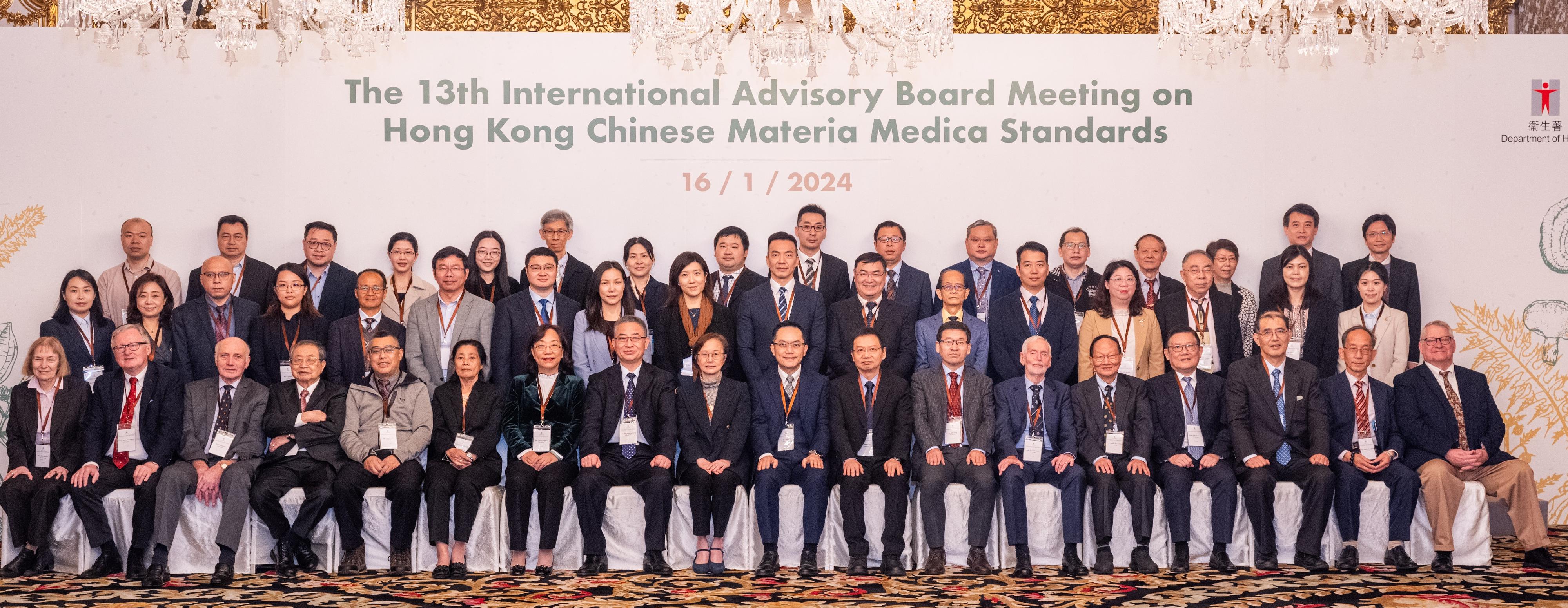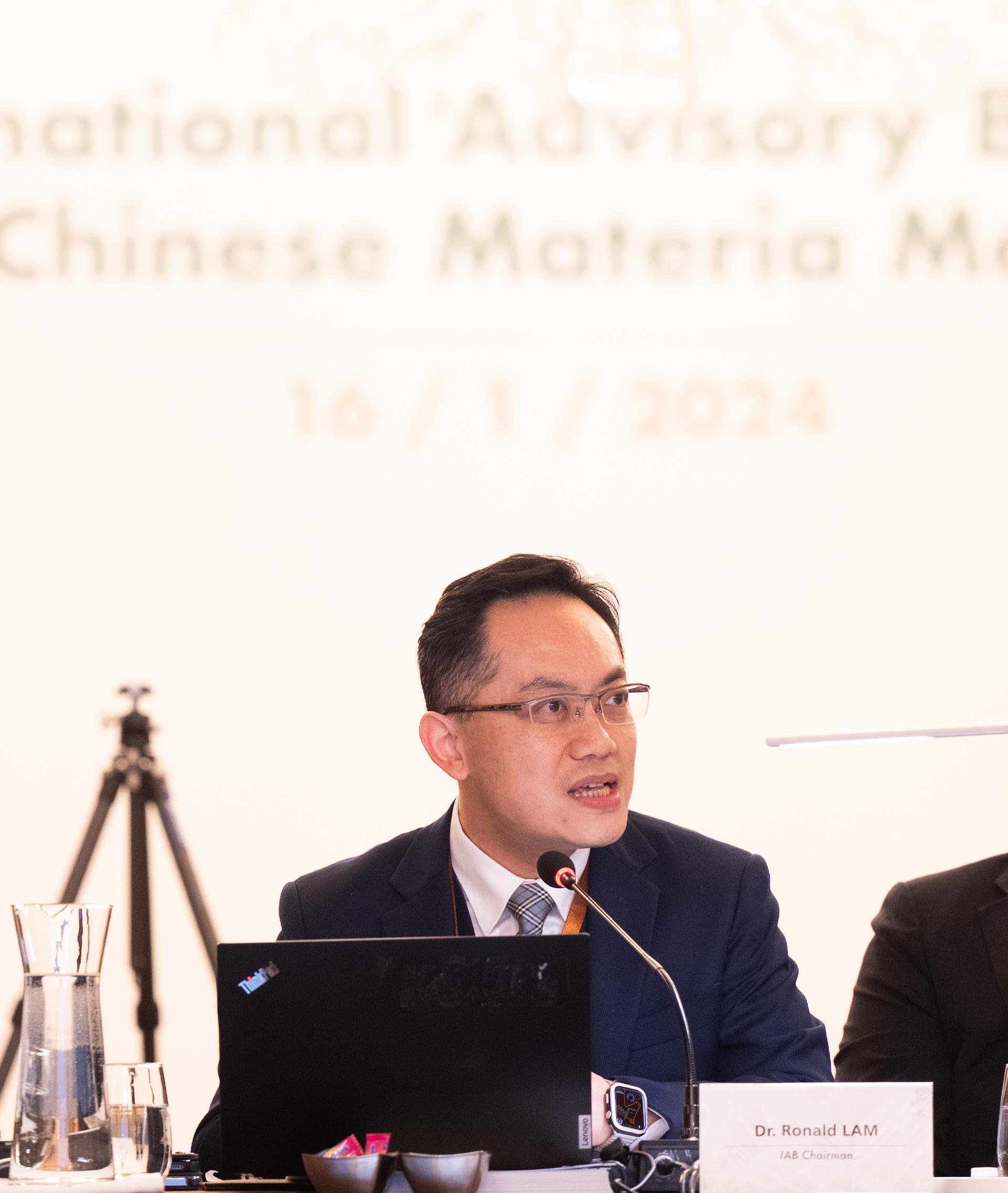DH hosts 13th Meeting of International Advisory Board on Hong Kong Chinese Materia Medica Standards (with photos)
The Department of Health today (January 16) hosted the 13th Meeting of the International Advisory Board (IAB) on Hong Kong Chinese Materia Medica Standards (HKCMMS) in Hong Kong to finalise the setting of reference standards for 13 Chinese Materia Medica (CMM) commonly used in Hong Kong.
The HKCMMS project was launched in 2002 to develop standards for commonly used CMM in phases to ensure the safe use and the quality of CMM. The findings of the HKCMMS have contributed to promoting the use of evidence-based, safe and quality Chinese medicines, further protecting public health as well as facilitating the development of Chinese medicine. It also serves as an internationally recognised reference and framework, and has been repeatedly cited by overseas reputable authorities and in international journal articles on research of Chinese medicines.
The meeting brought together more than 20 renowned experts from the Mainland, local and overseas, including Australia, Austria, Canada, Germany, Japan, Thailand, the United Kingdom and the United States. At the meeting, the IAB reviewed the research work on the 13 CMM for the HKCMMS project.
Addressing the opening ceremony, the Director of Health, Dr Ronald Lam, said that, "The HKCMMS project has reached its 22nd anniversary, with publication of the 10th volume of the HKCMMS, establishing reference standards for a total of 330 CMM as of now. The HKCMMS have become well-recognised reference standards in the field of Chinese medicines testing and certification, which pave the way to fostering the high-quality scientific development of Chinese Medicine."
Dr Lam remarked that the establishment of the HKCMMS project heavily relies on the participation of different parties, and he also thanked the four research partners, namely the Chinese University of Hong Kong, Hong Kong Baptist University, the Hong Kong Polytechnic University and the National Institutes for Food and Drug Control, for making efforts in setting standards, as well as the Government Laboratory for conducting inter-laboratory verification studies. Their participation is important in gaining scientific rigour and credibility for the HKCMMS project.
Dr Lam further said that "We are also very grateful to the National Medical Products Administration, the National Administration of Traditional Chinese Medicine and the Chinese Pharmacopoeia Commission for their continuous support and valuable advice to the development of the HKCMMS project."
During today's meeting, representatives from the Institute of Chinese Materia Medica of the China Academy of Chinese Medicine Sciences introduced the newly published journal "Science of Traditional Chinese Medicine", which will foster the standardisation and internationalisation of Chinese medicine.
Previous publications of the HKCMMS can be accessed at www.cmro.gov.hk/html/eng/useful_information/hkcmms/volumes.html.

